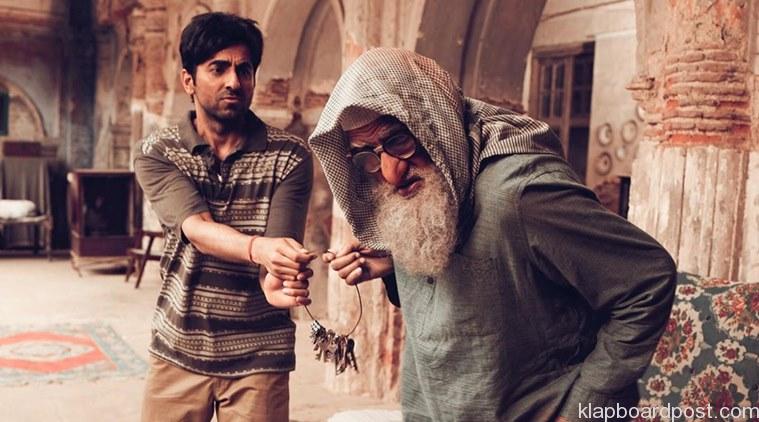Srivathsan Nadadhur
What makes Shoojit Sircar the filmmaker that he’s? What makes his collaboration with scriptwriter Juhi Chaturvedi magical? Gulabo Sitabo is probably the answer you’re looking for and is another testimony to their versatility as a writer-director duo. Much like their previous outing October, it doesn’t fall prey to conventions and leaves a lump in your throat when you least expect it to. Gulabo Sitabo stays with you long after the movie ends because of its many unexpressed words and delicately crafted moments. It’s very gradual in its storytelling and provides the viewer enough time and space to absorb the air of Lucknow in its entirety. The film has a certain timeless quality you can’t deny – it packages life like a bittersweet tonic.
The story is steeped in the many squabbles between a haveli owner (Fatima)’s husband Mirza Sheikh and a tenant Baankey Rastogi. The latter has been a resident of the haveli for many decades now, pays only Rs 30 as rent and considers the place as good as his own house. In short, he’s a tough nut to crack. In a quest to retain the sole ownership of the property and get rid of his tenants (whom he addresses as parasites), Mirza leaves no stone unturned. When the haveli falls under the watchful eye of an archaeology department official Gyanesh Shukla, equations take a turn for the worse. Will Mirza’s greed to usurp the wealth inherited by his wife get the better of him? Will Baankey’s dream of a rosy future ever come true?

The germ for Gulabo Sitabo seems to have emerged from Piku’s subplot about Bhasker Banerjee’s insistence to hold onto his ancestral property. Though the filmmaker transports you to a completely different universe, he holds onto the nostalgia of a palatial house, the many years of growing up with it and the truckload of stories it houses. The storyteller lends a personal touch and a character to an inanimate piece of brick amidst many squabbles between its Tom-and-Jerry like protagonists. The woes of a scheming owner to vacate his pest-like tenants from the mansion are relatable on a certain level.
In a different context, the film feels like a visual interpretation of the Telugu adage ‘Durasa dukhani chetu’ that loosely translates to ‘greed is the reason for all sorrow’. However, it doesn’t stuff the message into the narrative, i.e. the message isn’t its sole intention. Though leisured its approach, the backdrop is a delight to savour. There are enjoyable comical exchanges after the sequence where a tenant breaks the fragile wall of a common bathroom. There’s drama beneath every character and their quirks.
The writing doesn’t try to verbalise everything and leaves certain backstories to a viewer’s imagination. It’s precisely the reason why the filmmaker resisted the temptation for a flashback sequence of the haveli owner marrying a man who’s 17 years younger to her. They instead tell the backstory of the house through a letter, which is a masterstroke in terms of screenwriting. There’s sarcasm, humour, nostalgia and gloominess, all in a matter of minutes. There are excellent performances too. Amitabh Bachchan as the unlikeable, wily owner Mirza yet again shows how great body language is so integral to a performance, while you notice the actor in Ayushman Khurana more than the character.
Gulabo Sitabo belongs to its winsome supporting cast. Vijay Raaz, Brijendra Kala and Farrukh Jafar present their chutzpah in their limited yet essayed roles with an aura unique to them. Unlike the lead actors who seem reasonably self-aware of their skill, these artistes make their performances seem effortless, it’s casual and alluring at once. At the end of it, you want to embrace Gulabo Sitabo for its grounded-ness. A spectator may likely need more than a single viewing to appreciate it. Filmmaker Shoojit Sircar sticks to his core as a filmmaker – he doesn’t want his work to remain merely as a film, he wants it to be an experience and the effort shows.













